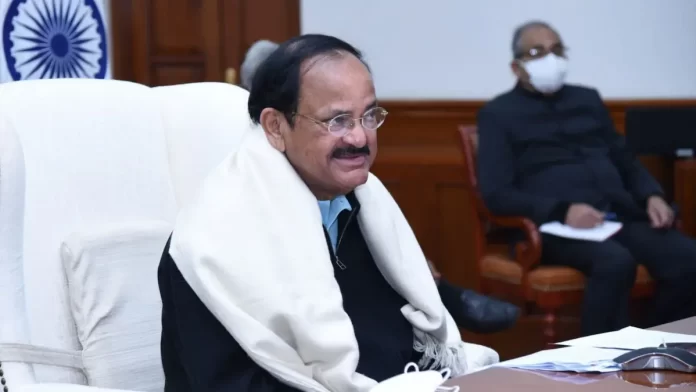India’s Vice President, M. Venkaiah Naidu on Monday called for an “objective re-evaluation of Indian history” through fact-based research adding that historians should be committed to truth.
The Vice President was addressing the Golden Jubilee celebrations of the Indian Council of Historical Research (ICHR) organized by the Ministry of Culture.
Stressing the need for greater academic rigor in historical research, he cautioned against “selective or incomplete accounts of Indian history”.
He said that retelling historical facts through an ideological viewpoint will provide a distorted view, as was done under colonial rule.
Instead, he urged historians to strengthen ‘scientific writing of history with the help of specialized bodies like the Indian Council of Historical Research (ICHR).
Shri Naidu also called for greater research on unsung Indian heroes of the freedom struggle, many of whom were ‘limited to mere footnotes in history books.
Untold History must be Told
As part of Azadi Ka Amrit Mahotsav, he said, their individual stories must be documented to reveal their ‘pain, struggle, and the great pride with which they fought for the motherland. ‘Untold history must be told, he said.
Even on popular heroes, Shri Naidu suggested that historical research must delve deeper into different aspects of their personalities in a more comprehensive manner.
He stressed the need for studying tribal and peasant revolts in various parts of the country in greater detail to understand the “unflinching courage of the ordinary masses who fought the British without any organizational backing”.
Shri Naidu observed that there are many people who fought in different parts of the country against the British and that all of them are ‘national heroes’
“It is our duty and highest patriotic mission to remember the supreme sacrifices made by our freedom fighters and their noble struggle to wrest independence from colonial rulers”, Shri Naidu observed.
India’s Civilizational Values have remained Constant
Touching upon India’s civilizational values such as brotherhood, tolerance, and peaceful coexistence, the Vice President said ‘these values have defined us and remained constant in our civilizational history.
“Kings and kingdoms changed over time, but these values remained a guiding lodestar to us”, he said.
He noted that despite the geographical variations, linguistic, religious, and ethnic diversity, “we share these quintessentially Indian values. That is why I say, we are all fundamentally Indians first. Our regional, religious and linguistic identities only come later”.
History can unshackle the Inferiority Complex of our Minds
Calling upon people to earnestly learn about Indian history, Shri Naidu said history can unshackle ‘our minds of any inferiority complex we may harbor’.
He emphasized that recounting tales of our freedom struggle will “not only remind us of the importance of nationalism but also of social harmony and brotherhood“.
Suggesting that ‘history should not be a niche subject monopolized by a chosen few, the Vice President said that there is a tremendous amount of work to be done in the domain of translation of literary and historical sources and accounts of ancient and medieval ages.
Children should regularly visit important Historical Places
Shri Naidu called upon state governments to organize regular visits to important historical places for children.
He suggested that school textbooks must cover stories of freedom fighters’ lives in an interesting and engaging way. ‘It is my conviction that the lives of our historical figures must be a source of inspiration for the next generations’, he said.
The Vice President complimented ICHR for completing 50 years of historical research and for “persevering to fill important gaps in Indian history”.
He appealed to people, particularly youngsters, to visit the exhibitions being put up by ICHR in various parts of the country to better understand the great struggle to attain Swaraj for India.
He also called upon Parliamentarians to visit the exhibition and know the contributions of freedom fighters and appreciate the efforts of ICHR.
